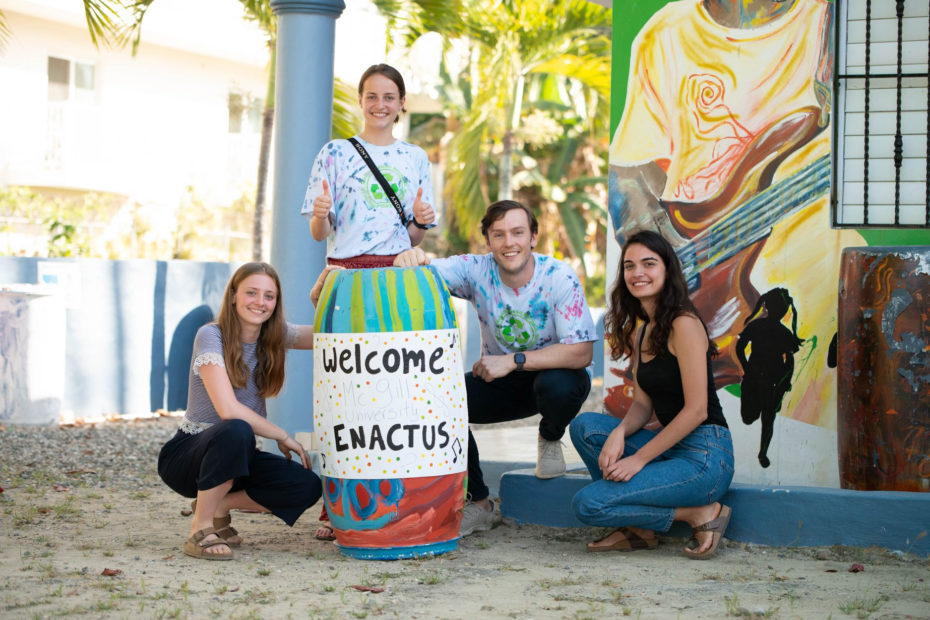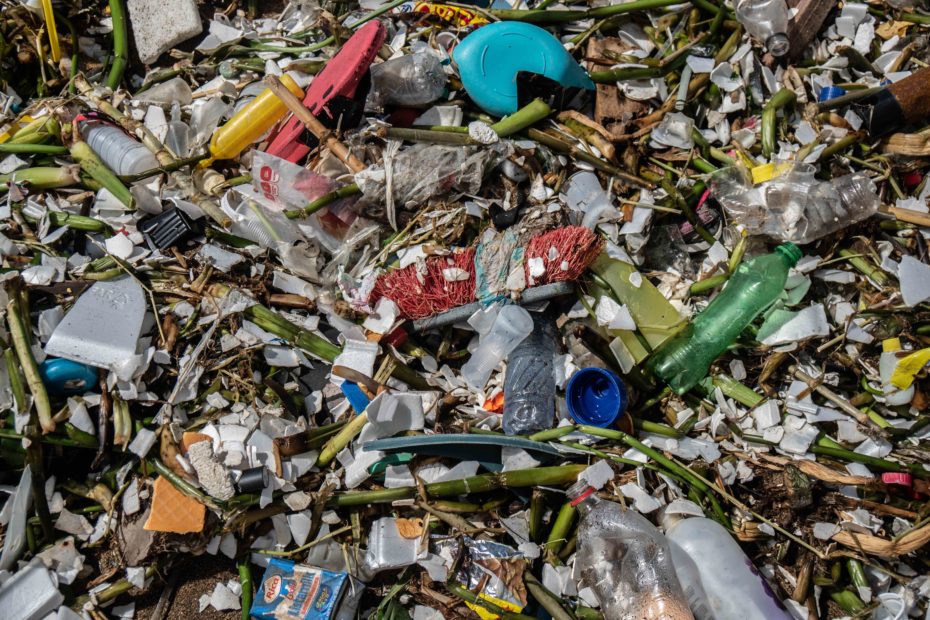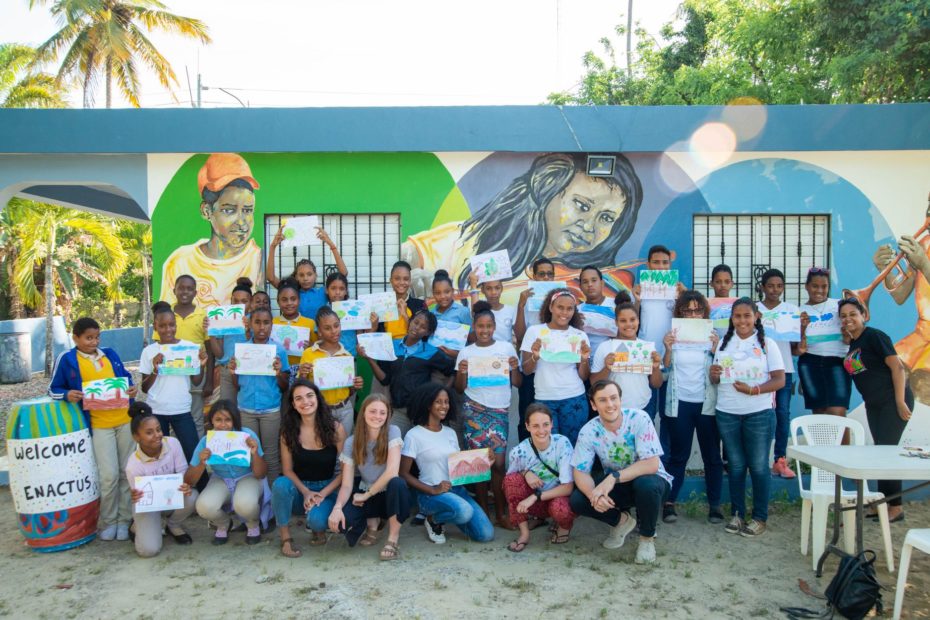
The visuals are apocalyptic. Vast expanses of trash bobbing up and down the sea, moving like a tsunami toward the shore in waves. On the beach, the scene is just as dreadful. Mountains of plastic bottles, syringes, sandals, bags, toothbrushes, etc. Mostly items that will takes eons to biodegrade.
That’s been the scene at Montesinos Beach on the south shore of the Dominican Republic for several years – not your typical conception of pristine Caribbean waters and idyllic beaches.
It so happened that Lucile Caron, president of Enactus McGill, a chapter of Enactus, the U.S.-based international organization of business executives, academics and students that organizes sustainable projects worldwide, is a regular visitor to the Dominican Republic.
Caron flagged the plastic garbage tsunami as just the sort of thing McGill students, under the aegis of Enactus, might want to be involved in. It also happens that her family is friendly with Maria-Elena Gratereaux, a Santo Domingo lawyer and activist who knows her way around the island’s laws and customs.
McGill quartet steps up
On May 2, after months of deliberations about which project to take up, McGill students Ali Dunn, Alessandra Pulici, Gabriel Hamilton and Delal Deniz Tomruk headed to the Caribbean nation for a week to lend a hand, dubbing their project Eco-Armonia (eco-harmony), with help from Parley for the Oceans, an environmental group that works to reduce plastic in the world’s waters.

The latest heap of trash was flushed downstream from the Ozama river and onto the Montesinos beach in Santo Domingo, but the issue is a recurring one – and Montesinos is only one such dumping ground in the Caribbean. The Pacific Ocean also has its Great Pacific Garbage Patch, an island of floating plastic garbage and other detritus that’s 1.6 million square kilometres, more than twice the size of Texas.
The four students saw for themselves what activists, environmentalists and local authorities have witnessed for years. The immediate problem is two-fold – a lack of awareness, or acceptance, that plastics harm the environment and an absence of recycling infrastructure.
“The latter is the much larger issue, so we focused on the education aspect,” said Dunn. “Change needs to start with awareness. If there’s no awareness, the locals won’t put pressure (on authorities), and there will be no recycling infrastructure. Education is the best place to start.”
Waste workshops
On top of rolling up their sleeves to clean beaches, the foursome, along with five environmental activists in the Dominican Republic, presented nine plastic waste workshops at five elementary schools and community centres during the week.
“Each plastic waste workshop had about 40 students, a total direct impact of a diverse group of 360 students,” said Dunn.
Hamilton, an Arizonian, translated the 1- to 2-hour workshops into Spanish.
Dunn and her teammates targeted affluent as well as less affluent schools and communities, speaking to pupils ranging from 6 to 17 years old. Only one group of older kids was “sassy,” Dunn said, but even they calmed down eventually and got onboard with the message.
She said they received great help from Parley the Oceans. But the more fundamental issue underlying the garbage wave, the lack of awareness and the absence of a recycling infrastructure, Parley for the Oceans founder Cyrill Gutsch told reporters, is plastic itself. Anything short of eliminating plastics, a substance that takes centuries to decompose completely, is a band-aid and a systemic failure, he said.
Toxic chemicals in plastics also break down eventually and are released into the water, he told the New York Times, adding chemical poison to the visual poison and to the mountains of garbage.
The McGillians’ airfare was paid for by the Students’ Society of McGill University, and their Airbnb-type accommodations were paid for by the students themselves, Dunn said.
Enactus holds annual competitions at which university chapters present their projects, with top ones receiving funding from Enactus. “Since our project is still in the early stages we didn’t receive any funding from Enactus for this trip,” Dunn said. “But we do hope to utilize their resources in the future.”
Read the Enactus McGill blog on their Dominican Republic initiative

